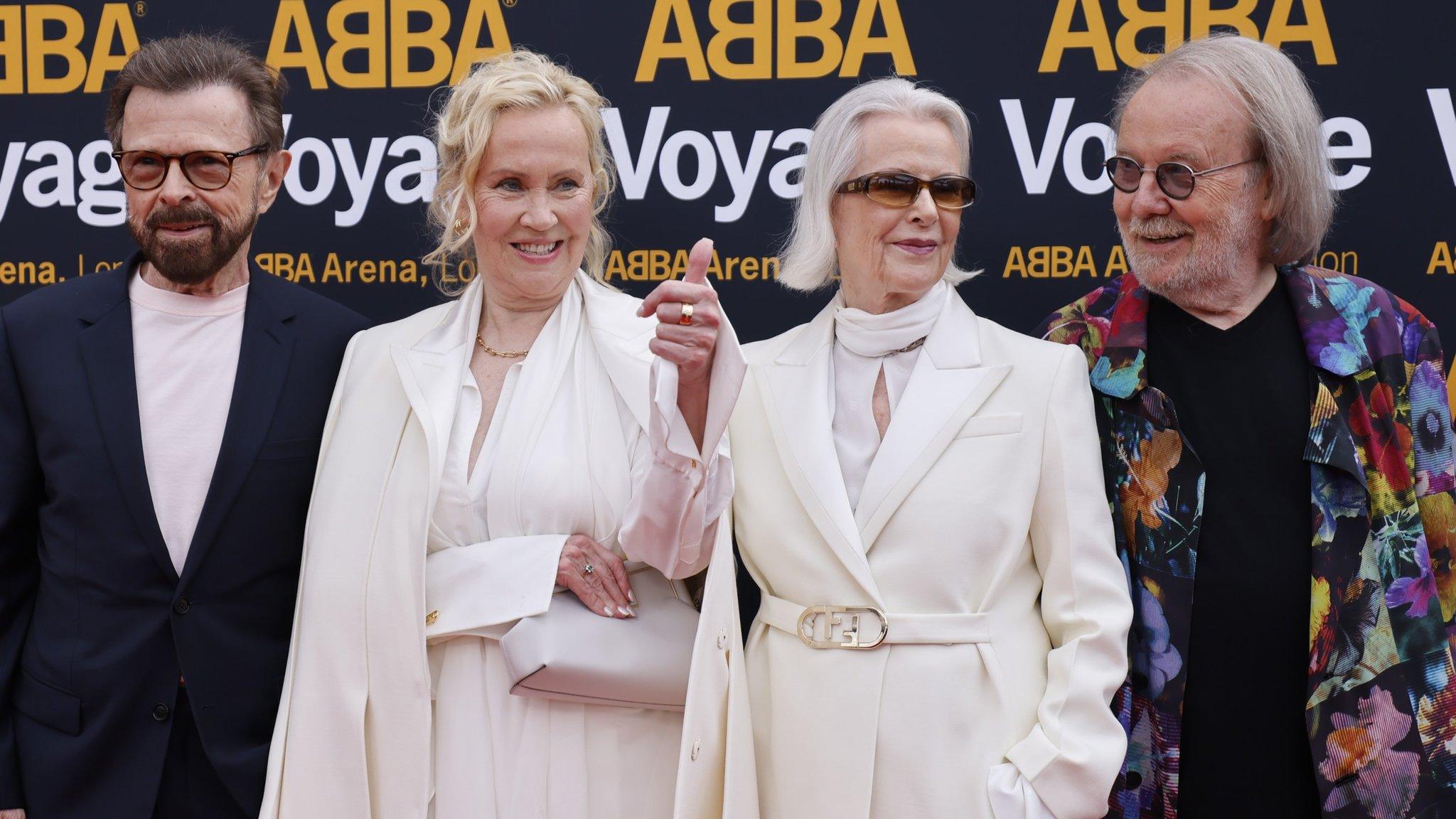Bastille: Why the band are making music for 'dystopian' days
- Published
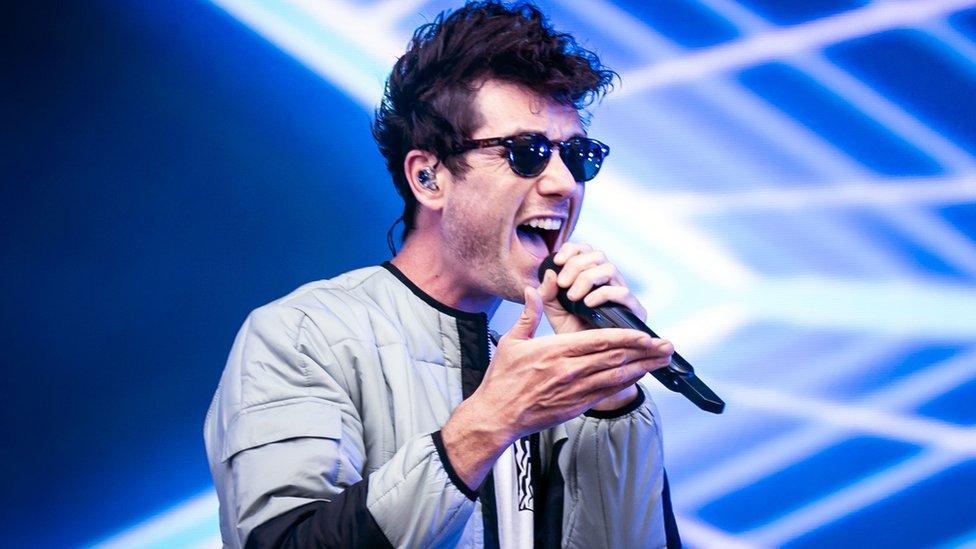
Dan Smith's Brit Award-winning, London-based band Bastille have scored three UK number one albums
While providing singalong hits like Pompeii and Happier at Reading and Leeds Festivals last month, indie-pop band Bastille also gave the digital natives in the young crowd some tech-focused newer material to stream directly into their souls.
Almost half of their live set, including Shut off the Lights and Future Holds, was taken from their chart-topping recent album Give Me The Future, which looks at mankind's relationship with modern technology and the possibilities, both good and bad, of connecting online.
Frontman Dan Smith describes it as "a slightly weird, futuristic science-fiction, pop album".
"We started it before the pandemic but made it through the lockdowns and strange times," he tells the BBC backstage at Leeds. "It was amazing to have this catharsis of writing tunes about the bizarreness of the times that we live in and how it often feels like a weird dystopian science-fiction anyway.
"But it's also an album about escapism: escaping into the past, the future, fiction, fantasy and technology, and how amazing that can be... but also obviously there are complications and darknesses to all of those things."
Allow YouTube content?
This article contains content provided by Google YouTube. We ask for your permission before anything is loaded, as they may be using cookies and other technologies. You may want to read Google’s cookie policy, external and privacy policy, external before accepting. To view this content choose ‘accept and continue’.
At 36, Smith can remember a time before the internet, but some of Bastille's fans probably won't. Though it hasn't stopped them from singing along with his band's mid-set medley of 90s dance covers.
Ahead of their Reading performance of Plug In, another from their latest LP, a video on the big screens invited festival-goers to enter their own "innerverse"; before Smith wondered out loud, melodically through a vocoder microphone, whether he/we would be alright in a world of artificial intelligence, deep fakes and fake news, as well as driverless cars and a billionaire space race.
"So much today, from the tech we use to how we communicate to each other, [to the] fact that some people change what they look like so much online that when it comes to actually meeting up with someone, they are scared to do so because their picture is so wildly different from how they look in real life..." he ponders.
"It's changed everything, how we meet people, how we communicate, how we work."
Back to the future
In early 2021, Bastille released a documentary entitled Re-Orchestrated, reflecting on their past 10 years together, in which their singer-songwriter spoke openly about his anxieties and body dysmorphia.
A year on, Smith and co switched their focus to the future. Their synth and string-layered album, set over the course of one night, is littered with references to imagined worlds, from Blade Runner to George Orwell's 1984 (plus a spoken-word interlude narrated by Oscar-winner Riz Ahmed), and was broadly well received by the critics.
"Smith's singing is filled with pliant emotion, and it all adds up to a pop album so addictive that it feels as though it had been intravenously injected into my system," opined The Telegraph's Neil McCormick, external.
"The record itself functions like an escape pod," the Independent's Annabel Nugent added, external. "When confined within Bastille's catchy hooks and imaginative, era-spanning production, what lies ahead suddenly isn't so terrible."
With ideas overflowing in his seemingly hyperactive brain, Smith returned to the concept in August, releasing a fresh batch of additional songs - like Revolution, and Run Into Trouble featuring Brazilian producer Alok - for an expanded version of the album.
Allow YouTube content?
This article contains content provided by Google YouTube. We ask for your permission before anything is loaded, as they may be using cookies and other technologies. You may want to read Google’s cookie policy, external and privacy policy, external before accepting. To view this content choose ‘accept and continue’.
Smith says he and his bandmates are preoccupied with their reliance on modern technology, and are somewhat conflicted.
He created most of their 2013 breakthrough debut album in his room on his laptop. And these days, he records song ideas into his smart phone and keeps in contact with people using messaging apps and social media while on tour.
However, the musician admits he does use his phone a potentially "unhealthy amount" and finds he needs pulling out of "spiralling thoughts" about where we are heading. Other stars such as Selena Gomez and Tom Holland have previously pointed out the perils of too much time spent on social media.
The evolving LP, Smith says, is the sound of him trying to "navigate digital spaces" while making more of a conscious effort "to be more present".
"It's about trying to hold a mirror up to how bizarre things are and how complicated or confusing it is for everyone," he explains.
"Particularly Future Holds, the last song on the [original] album was basically me, aimed at myself," he stresses. "I thought it would be kind of funny and ironic to have an entire album that speculates and worries about what the future might look like and then finish it with a song being like, 'yeah that's fine, but stop worrying about it for a minute and just enjoy this situation for a second because you could be dead tomorrow!'"
Another new song, Hope for the Future, external, was specially commissioned to help soundtrack the climate change documentary, From Devil's Breath, produced by their old Saturday Night Live buddy Leonard DiCaprio. Smith describes the film as being both "beautiful and incredibly sad".
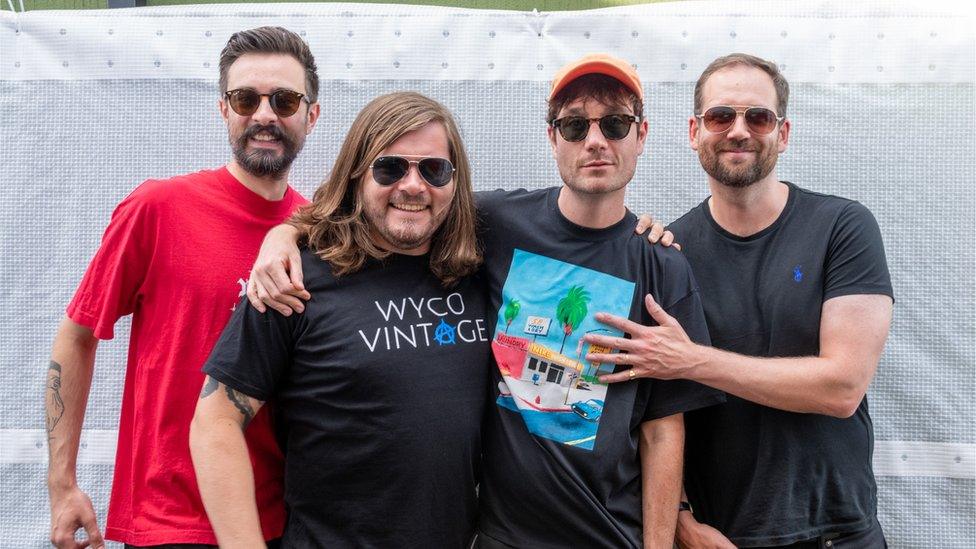
Kyle Simmons, Chris Wood, Dan Smith and Will Farquarson of Bastille backstage at Reading Festival last month
Bastille have always appeared to be a forward-thinking bunch. You may recall them streaming a performance at Birmingham New Street railway station via 5G and captured in augmented reality, for a TV phone advert in 2019.
And while those at their surprise Glastonbury set and The Hundred cricket final this summer all got to see the band play in front of their very own eyes, others recently joined them for a one-off gig in the metaverse.
In June, as part of the concept for the album, Bastille's Give Me The Future experience used the latest (but still rarest) technology to enable fans around the world to don their headsets and become a virtual audience of stylised avatars.
Allow YouTube content?
This article contains content provided by Google YouTube. We ask for your permission before anything is loaded, as they may be using cookies and other technologies. You may want to read Google’s cookie policy, external and privacy policy, external before accepting. To view this content choose ‘accept and continue’.
Smith, whose band are currently touring South America (and then Europe) in the flesh, describes the experiment as a "really interesting" one, which he's "open-minded" yet equally "cynical" about.
"A lot of the digital shows that have existed live or the VR [virtual reality] shows have been a thing that you watch that's been pre-made and you basically go and you're inside it watching it as a thing that exists [like Abba Voyage], and we wanted to try to experiment with how can you make it live and interactive," he says.
"Obviously, it's never going to be anything like a gig in real life, it's a different experience altogether, but wouldn't it be interesting for people who are watching live to also be able to interact in some way?"
"Some of that stuff is really exciting," he beams. "And some of it is terrifying..."
As our conversation comes to an end, Smith bids us a warm festival farewell, before quickly appearing audibly aghast at a breaking news alert that has been waiting for him in his pocket all along.
Bastille's expanded fourth album, Give Me the Future + Dreams of the Past, is out now.
Related topics
- Published23 February 2021
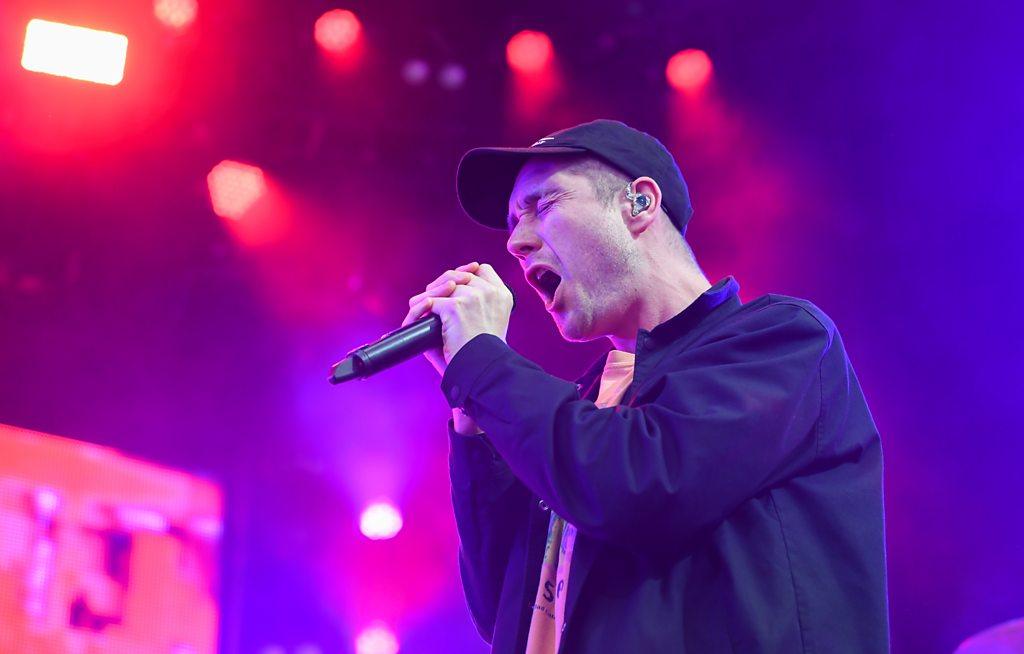
- Published19 February 2020
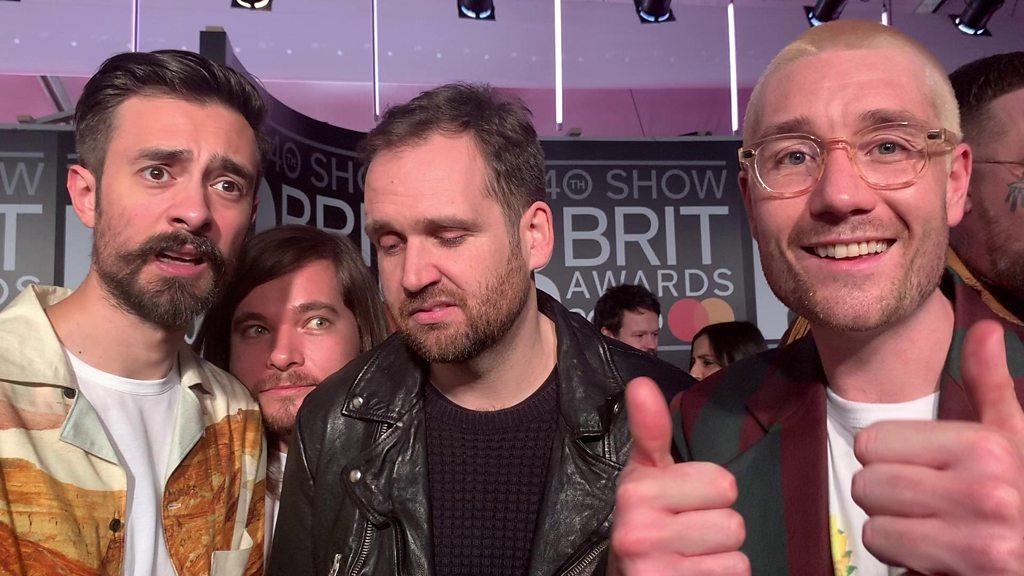
- Published27 August 2022
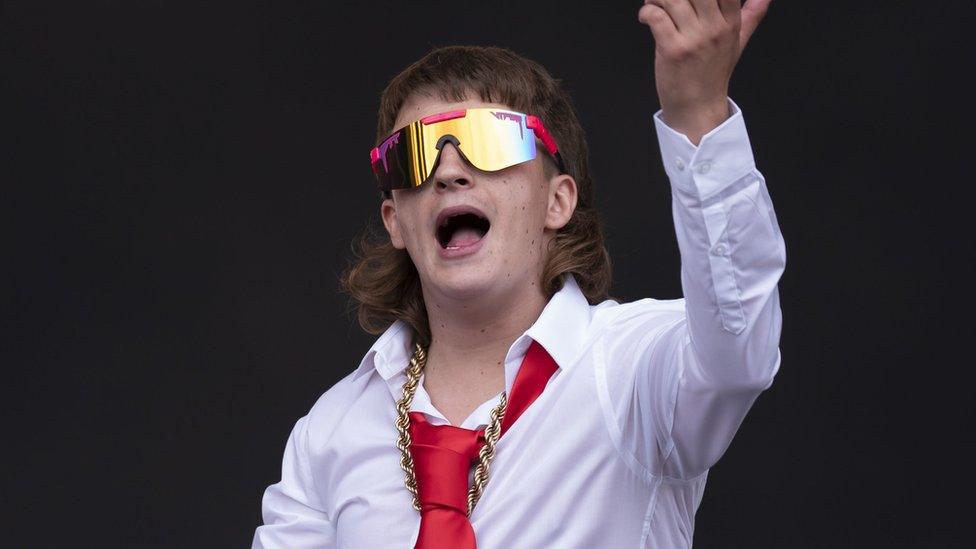
- Published26 May 2022
